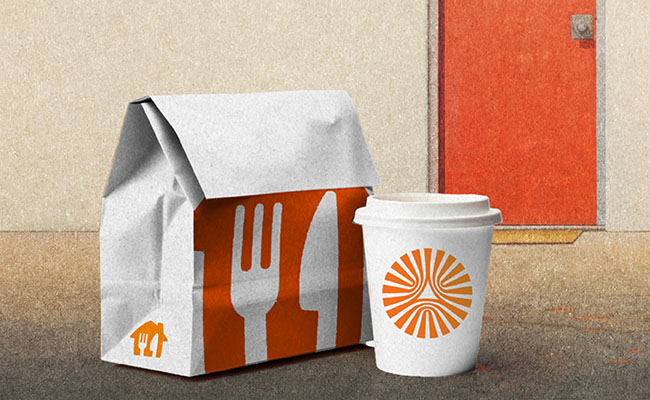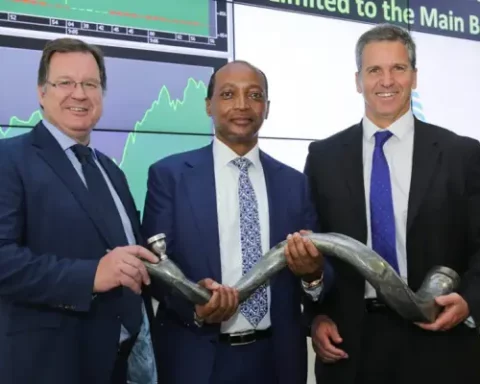Naspers and its European bro Prosus are pushing deeper into food delivery with their biggest acquisition yet. Add to cart: R80bn of takeaways.
Or, as it’s now called: Just Eat Takeaway.com.
Now if you are wondering why that name sounds familiar, Prosus, then led by the “Buying Dutchman” Bob van Dijk, made a play for Just Eat six years ago. Only, Takeaway.com swooped in with a more appetising merger proposal to secure the deal. It was an R110bn miss for Prosus, at a time when it really, really wanted to attract attention. Remember, the company had just been spun out and listed on the Euronext bourse in Amsterdam in September 2019 as Europe’s “biggest technology company” – a seemingly exciting mix of online classifieds, payments, food delivery and, potentially, education.
A bidding war ensued and Prosus offered more cash, once, twice, but then walked away.
Given the fact that today’s price of €4.1bn – which is still at a cool 49% premium to the company’s three-month volume weighted average share price – is so much less than the 2020 offer, and gets Prosus not only the Just Eat it was eyeing in 2019 but also Takeway.com, you could think of the 2020 disappointment as the non-deal of the century.
For the successful acquirer back then the result was a combo name much worse than an infant christened Chane-Marie or Le-Dash-Nie. If ever a food delivery business could manage to not roll off the tongue, Just Eat Takeaway.com was it. But that long name was the least of its worries, mind you.
Remember those heady tech valuations of the first stay-at-home months of the Covid pandemic? If you owned shares in companies flogging upmarket treadmills, training cycles or video-conferencing software you were smiling. Food delivery was part of the same hype. If you couldn’t go out due to the virus, then you’d dine in. And so the share price of Just Eat Takeaway.com rose to eye-watering highs. It continued its acquisition path, bagging US food delivery business Grubhub for $7.3bn in June 2020. But, quickly, indigestion ensued. Just Eat sold Grubhub for less than $700m last year. A bit like getting a lettuce leaf when you ordered a cheeseburger.
Why bother?
So why would Prosus want the leftovers, at all?
Consider that Just Eat Takeaway.com made a loss of €1.65bn in the year to end-February 2025. Technically, that’s related to impairments against the Grubhub purchase. While that’s smaller than 2023’s loss of €1.85bn, it’s still, you know, more than R38bn of value leaving the company, rather than money coming in.
And then there’s the hardly exciting revenue growth (“gross transaction value”) of 2% in constant currency last year, though this is seen ticking up to between 4% and 8% this year, along with projected adjusted earnings before interest, tax, depreciation and amortisation of between €360m and €380m. Not to mention the paltry cash that’s been pencilled in of just €100m in 2025.
You can see why Prosus shares slumped 7.76% on Monday – way in excess of the 3.8% decline suffered by its biggest investment, Tencent, on the day.
But, says Prosus, the deal will create a “European tech champion” that will “be well-positioned to strengthen its brands, enhance operations and drive future growth well beyond its standalone potential”. Just Eat Takeaway without Grubhub was evidently a compelling proposition, too. Even if “it wasn’t a driver, it was certainly a helpful fact”, says chief investment officer Ervin Tu.
A lot has also changed since Prosus first browsed the menu. Those lofty valuations came down sharply, so assets in the sector are much cheaper now than they were then. Also, Prosus is under new management, with two executives who appear to have a better sense of extracting value from the company’s operations than Van Dijk.
Tu has come in as CIO to tidy up a sprawling portfolio of technology assets. Half a decade ago, Van Dijk built those segments in edtech, food, classifieds and payments. Large sums were spent bolting on businesses to get the segments roughly the same size. But the scaling up worked better on a slide-deck than in practice and very little is left of the several billion dollars spent on edtech, for example.
Tu does not like calling the different focus areas “segments”. Both he and CEO Fabricio Bloisi have been clear about turning Prosus into one unit – a business that makes sense as a whole, moving away from the so-called “siloes” of the past. Bloisi ran iFood, Prosus’s biggest Brazillian investment, for more than a decade before taking the reins at head office. So it’s no surprise that Prosus wanted all of Just Eat, not merely a nibble.
“There is more sanity around food delivery these days,” says Old Mutual Invest investment analyst Ian Woodley.
“Clearly these businesses can’t just keep burning cash, they have to start making money at some stage,” he adds. And there is certainly a departure from the idea that everyone needs to be everywhere all at once.
Enter AI
In the late 2010s, food delivery businesses wanted to be in every country, so billions were spent to establish footholds in far flung places that ended up not paying off, says Woodley. “If you are not number one or number two in a market, it is going to be a struggle,” he adds.
There were winners, yes, but also lots of losers. Consolidation was clearly on the cards. India is a good example. There Zomato and Uber Eats merged in 2020 to create a larger competitor for the then market leader, Swiggy. And finally, Prosus looks to be bargain-hunting instead of turning founders into billionaires. Now it can really tinker with what it has bought.
Prosus has also been telling all who will listen that its AI capabilities will be a game-changer for businesses such as food delivery. Bloisi in particular has waxed lyrical about the effect it has had at iFood – the company he knows best. Enhanced fraud prevention, quicker turnaround times and sharper customer service are some of the examples cited.
The plan is now to make these new technologies part of Just Eat Takeway and get the business as profitable as possible. There aren’t, however, plans to integrate the business with Prosus’s other European asset, Delivery Hero. While Just Eat is big in the UK and some other countries on the continent, Delivery Hero, in which Prosus holds a stake of about 25%, is more focused on the Middle East and South Korea.
Yet it had better work out: Prosus has ploughed more money into food than anything else. And the food delivery portfolio is worth more than the rest of its non-Tencent assets put together. Perhaps a Rennies with that takeout is in order.
Sign up to Currency’s weekly newsletters to receive your own bulletin of weekday news and weekend treats. Register here.










